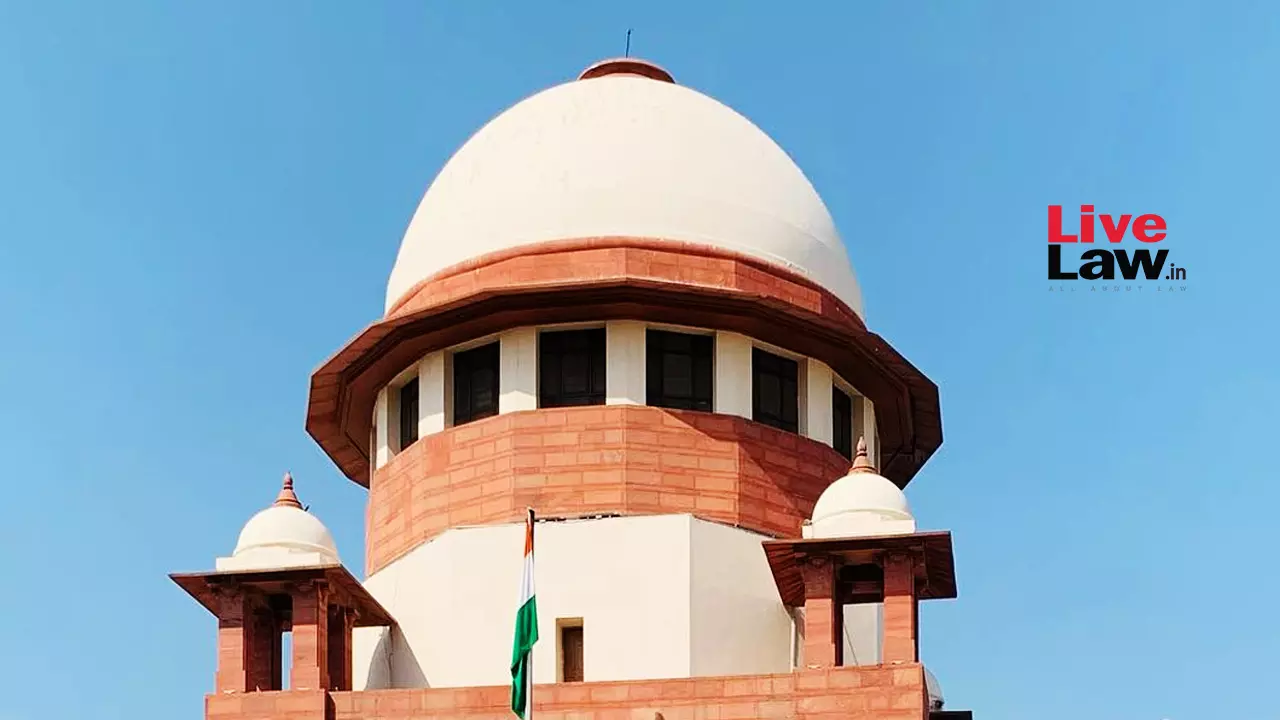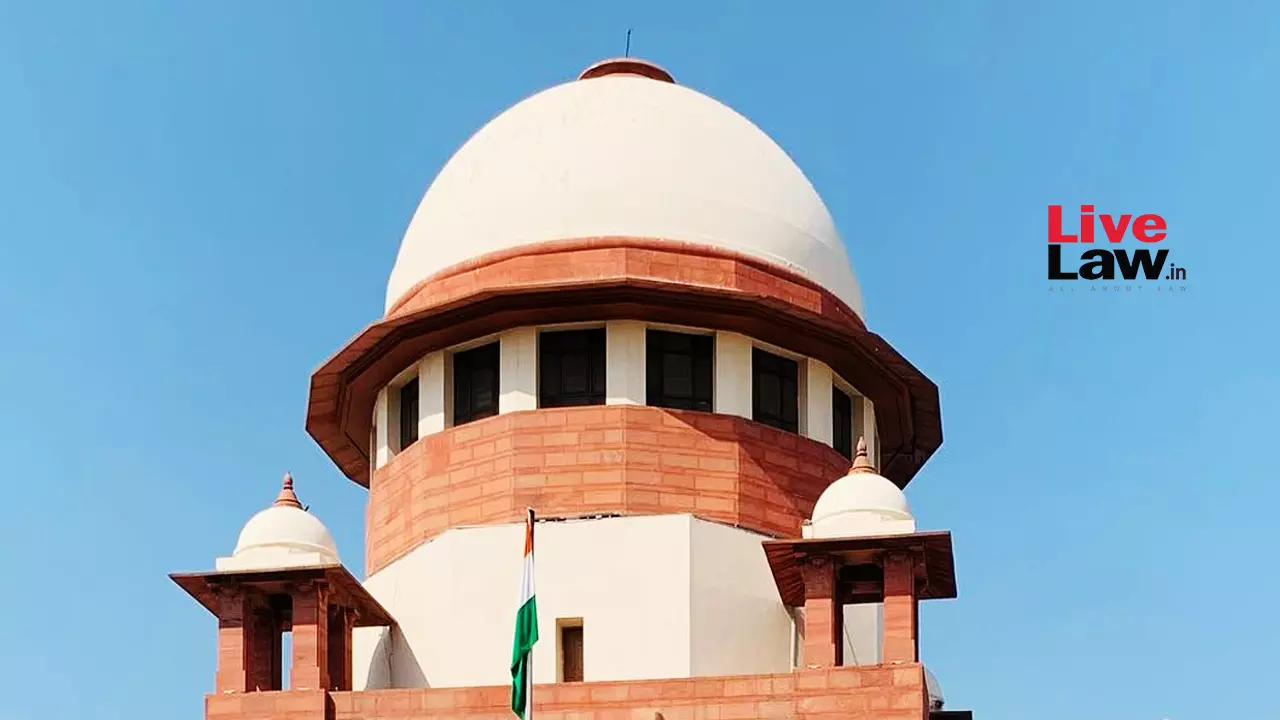Supreme Court Notifies Guidelines For Retention And Destruction Of Administrative Records


The Supreme Court has notified the “Guidelines for Retention and Destruction of Records, 2025” to regulate the handling of administrative records in the Registry. The move addresses the absence of a uniform retention framework for administrative records.
While judicial records are already governed by Order LVI of the Supreme Court Rules, 2013, and Chapter XXI of the 2017 Handbook on Practice and Office Procedure, no such system existed for non-judicial files.
Chief Justice of India BR Gavai, in a message accompanying the guidelines, stated that the Registry had witnessed a significant increase in the volume and diversity of administrative records. He said the new norms would bring “coherence, accountability, and operational efficiency.”
The guidelines lay down the following general instructions applicable to all branches:
-
- Files signed by the Chief Justice of India or judges, as well as policy files, circulars, and office orders, must be preserved permanently.
- Retention periods begin only after final disposal of related arbitration, litigation, enquiry, or audit.
- Files cannot be destroyed if any court case is pending in relation to the subject.
- Branches must check with other branches if records are interconnected or confidential.
- Destruction can proceed only with Registrar approval and preferably during court vacations.
- Scanned copies may be retained beyond the retention period with reasons recorded in writing.
- Financial documents must be maintained by financial year; others by calendar year.
A brief branch-wise categorisation of records and their retention timeline:
Admin I Branch:
- Personal files of current and retired employees: for employees eligible for terminal benefits: 5 years after last order of gratuity, for other employees: 5 years after they have ceased to be in service.
- Departmental Promotion Committee (DPC) paper books, vigilance report, interview sheets, leave records and pay commission folders: permanent.
- RTI applications without appeal: 3 years; with second appeal involving significant decision: 5 years. File Register of RTI Applications: Permanent
- Compassionate appointment files: 5 years.
- Office orders (old): 1 year; current: retained as needed.
- Files on creation of posts and promotions: permanent.
- Parliamentary Questions: 3 Years
Admin II Branch:
-
- Service books, pension files, and registers: permanent.
- Casual leave: 1 year; study leave and other leave records: 3-5 years.
- Leave encashment records and non-functional upgradation registers: 5 years.
Admin III Branch:
-
- Medical/reimbursement claims: 3 years or 1 year after audit whichever is later.
- Application for delay condonation: 1 year
- LTC Claims and TA/DA: 3 year or 1 year after audit whichever is later.
- House Building Advance (HBA): 3 years after recovery of HBA+interest and handover of deeds.
- CGHS files and retirement registers: permanent where noted.
- General Provident Fund: 1 year after retirement
- Child Education Allowance register: preserved permanently.
- Audit files: 3 years or until audit paras are settled.
Admin J Branch (related to Judges):
-
- Bills for mobile, landline, electricity, and water: 3-5 years.
- Records of judges’ official international visits and appointments: permanent.
- Gift item and entertainment registers: 5 years or 1 year after audit.
- Retirement-related records, furniture, and IT items at bungalows: 5 years post-retirement.
- Salary of judges/bill register, pay details of judges: 5 years or 1 year after audit
- Leave register of judges: 5 years from retirement
- Income Tax of judges: 5 years or 1 year after audit
- Appointment and retirement in respect of judges: preserved permanently.
- Full court meetings, files related to international conference organized by Supreme Court, establishment of bench of Supreme Court: preserved permanently
Admin General Branch:
-
- Files related to construction of Supreme Court building, chamber allotment, and seal of Supreme Court: permanent.
- Lawyer chamber panel correspondence: destroyed 5 years after finalisation.
- Supreme Court event records (e.g., Full Court Reference) and annual calenda: permanent.
- Allotment of government accommodation to officers: Permanent
- Maintenance files and vendor contracts: 1-5 years depending on subject.
Admin Material Branch:
-
- Tender documents and project files: 5 years after expiry or warranty period.
- Circulars and policy notes: permanent.
- Consumable stock registers: 3 years or 1 year after audit.
- Non-consumable stock registers: permanent.
- Greeting card records for Judges: 2 years.
Security Branch:
-
- Parking sticker and ID card records: 2 months to 10 years, depending on the subject.
- Digital proximity card data: preserved permanently on the server.
Caretaking Branch:
-
- Attendance, requisitions, and reports: 1-3 years.
Cash and Accounts:
-
- Cash books under Central Govt. rules: 10 years.
- Establishment pay bill registers: 35 years.
- Audit-related files: 3 years or 1 year after completion of audit.
Crèche:
-
- Admission records and registers: 1-3 years after child leaves or reaches age limit.
- Staff recruitment documents: 3 years.
- Policy files: permanent.
Medical Branch:
-
- Medical reimbursement for judges: 5 years or 1 year after audit.
- CGHS card files and correspondence with CGHS: permanent.
- Budget, yoga, AYUSH, and dispensary files: permanent.
- Agreements with private hospitals: permanent.
Protocol Branch:
-
- Tour files of CJI and judges (official and private): 1-3 years after completion/retirement.
- Official international visits and foreign delegation records: permanent.
- Air bill registers and debit note registers: permanent.
- State guest facilities and office equipment: permanent.
Reception Branch:
-
- Photo entry pass application forms: 3 months after issue.
Recruitment Cell:
-
- Exam-related applications and answer sheets: 1-6 years depending on type.
- Final result records: 5 years.
- Litigation records: 3 years post-disposal.
- Law clerk and contractual staff records: 3 years after exit.
Transport Branch:
-
- Fuel, maintenance, and condemnation records: 3 years or 1 year after audit.
- Log books, overtime bills, and chauffeur rosters: 1-3 years.
- Bill registers and vehicle registers: permanent if re-written (old volume to be kept for 3 years).
Vigilance Cell:
-
- Disciplinary proceedings:
- If penalty imposed: 5 years after dismissal or court judgment or dismissal/retirement, whichever is later.
- If exonerated: 5 years after appeal/judgment.
- Policy files and signed notes: permanent.
- Movable/immovable property declarations: retained till retirement.
- Annual property returns: 1 year after retirement.
- Complaints and FIRs and Matrimonial Disputes: till closure.
- Police verification records: 1 year (with entries in service record).
- Disciplinary proceedings:





